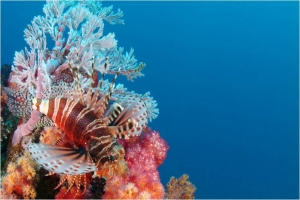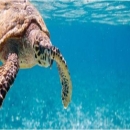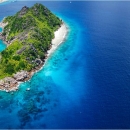Blue Bond initiative to protect marine resources launched
By Mr Selby Remy, MFF National Coordinator, MFF Seychelles Office
Location: Seychelles. 12th Jan 2016
The Seychelles is a small archipelago in the Indian Ocean. Like other Small Island Developing States (SIDS), the country faces sustainable development challenges including small but growing populations, limited resources, susceptibility to natural disasters, vulnerability to external shocks, and fragile environments.
Due to its limited land resources, the Seychelles relies heavily on its coastal and marine resources for employment, socioeconomic development and foreign exchange earnings. The fisheries sector is one of the country’s top economic drivers, accounting for 30% of the country’s GDP and 17% of employment.
Unfortunately, fisheries in the country are facing increased pressure from anthropogenic factors such as piracy, over-fishing and illegal fishing, as well natural factors such as rising sea temperatures, ocean acidification, deterioration of biodiversity, habitat loss and worsening pollution. If no action is taken to conserve ocean resources, fisheries stocks will most likely decline to a point where they collapse or become unviable. This will directly threaten the country’s socioeconomic growth and development.
Action to be taken now
The solution lies in finding ways to move beyond the usual trade-off between economy and the environment. Despite making many strategic investments in its conservation efforts, Seychelles recognizes the need for innovation and constructive transformation in order to empower people, and lay the groundwork for them to benefit from new opportunities.
These potential improvements were reaffirmed by the Republic’s President James Michel at the launch of the national dialogue on Blue Economy last year. The Blue Economy is a concept in which ocean ecosystems provide efficient, equitable and sustainable economic and social benefits. President Michel also formed the Blue Economy Department, under the Ministry of Department. This department will be the driving force in developing the National Blue Economy Roadmap, through which it is anticipated that a range of future development opportunities will be created and utilized.
As a first step toward recovering the ecological and economic health of the vital fisheries sector, Seychelles, with grant funding from the Global Environment Facility, has developed a detailed management plan for the Mahe Plateau fishery. The goal of the plan is to develop “a sustainable fishery that delivers the best possible ecological, economic and social benefits for the Seychelles through effective, transparent and participatory management”.
Successful implementation of the plan, which is estimated to cost USD10m, is expected to result in a more economically valuable and financially sustainable fishery, with healthier fleet and supply chains, better and more secure jobs, and a healthier environment.
To raise the required capital for the implementation of the plan, the Seychelles Government plans to issue a sovereign bond named ‘Blue Bond’, a novel financing initiative which taps into capital markets for funds. The proceeds from this bond will specifically be designated for the implementation the Mahe Plateau fishery management plan. As the national authority responsible for fisheries, the Seychelles Fishery Authority will be the implementing agency and receive bond proceeds. Repayment of the bond will be the obligation of the Seychelles Government, which may be supported by specific revenues derived from the Mahe fishery after a period of time.
The proposed bond offering would generally follow the “Green Bond” model that has been used by governments, development banks and corporations to fund projects with positive environmental and climate benefits.
Implementation Matters
Seychelles has sought the assistance of an established consultancy firm to analyze the economic, social and environmental benefits of this transition in fishery management practices. Among other objectives, the firm will quantify specifics of funding needed, as well as develop a bio-economic model that will offer a projection of outcomes of various implementation scenarios.
In order to attract investors seeking to invest in this ‘blue bond’ initiative, Seychelles will continue to engage internationally recognised NGOs in addition to certification bodies in the implementation of Mahe Plateau fishery management plan. Their roles will vary from validating the management plan to ongoing involvement in the governance of fisheries management.
In implementing the Blue Bond initiative, Seychelles has made a giant leap forward in its ocean conservation strategy. If these efforts prove successful, it could serve as a much-needed model for other SIDS.
NOTE: figures cited in paragraphs 4 are from EU


